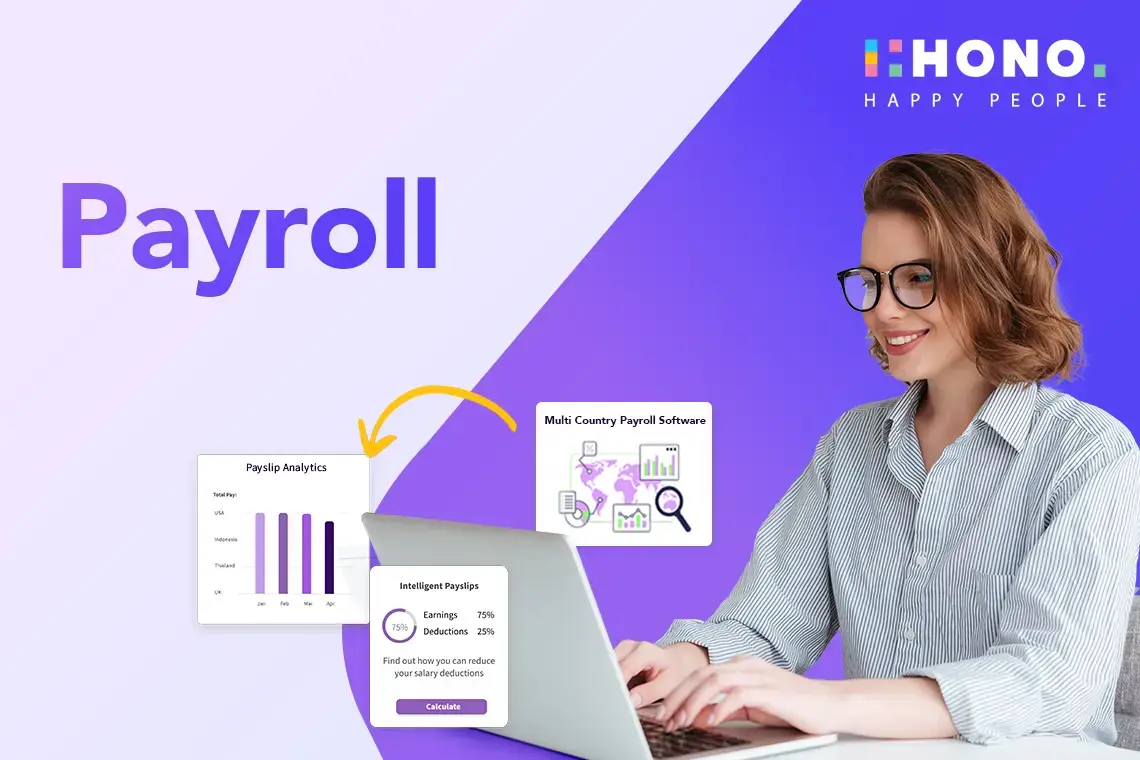In a competitive world of business, mastering expense management has become more crucial than ever. As companies strive to optimize their operations and enhance profitability, the need for an efficient expense management system is on the rise. Traditional methods of tracking expenses are often time-consuming and prone to errors, leading to financial discrepancies and operational inefficiencies. Modern expense management software offers a solution, streamlining the process of recording, monitoring, and analyzing expenditures. By adopting advanced expense report software, businesses can eliminate manual errors, reduce processing times, and ultimately save money. This shift towards digital expense tracking software is not just a trend; it's a strategic move to ensure financial accuracy and operational excellence in today's competitive sector.
Mastering Expense Management with Software, Streamline Processes and Save Your Business Money
9 mins

What is Expense Management?
Expense management is a crucial aspect of financial control within a business, encompassing the processes used to track, report, and reimburse employee expenses. It involves various components, including expense tracking to monitor spending, expense report software to compile and submit claims, and reimbursement mechanisms to ensure employees are repaid promptly. An effective expense management system streamlines these processes, enabling businesses to maintain accurate financial records and prevent overspending. By leveraging advanced expense software, companies can automate data entry, reduce errors, and gain real-time insights into their spending patterns.
Why Effective Expense Management Matters?
Effective expense management is vital for businesses seeking to optimize their financial performance. It offers several benefits, including cost savings through the identification of unnecessary expenditures and improved budgeting by providing a clear picture of spending trends. Streamlined workflows are another advantage, as expense management software automates routine tasks, freeing up staff time for more strategic activities. Additionally, a robust expense management system enhances policy compliance, reducing the risk of fraudulent claims and ensuring adherence to company spending guidelines. In summary, effective expense management is a cornerstone of financial efficiency, driving cost savings and operational improvements.
The Challenges of Traditional Expense Tracking
Despite its importance, many businesses still grapple with the challenges of traditional expense tracking methods. Manual expense management is fraught with pain points, such as lost receipts, which can lead to incomplete financial records. Manual data entry is not only time-consuming but also prone to errors, resulting in inaccuracies that can skew financial reports. Delays in reimbursement are another common issue, leading to employee frustration and potential cash flow problems. These challenges highlight the need for modern solutions, such as expense tracking software, which can automate and streamline the expense management process, mitigating these pain points and enhancing overall efficiency.
Exploring Expense Management Solutions
In today's business environment, managing expenses efficiently is more important than ever. Various types of expense management solutions exist to help businesses conquer the chaos of financial tracking:
Expense Management Software: This comprehensive solution automates the entire expense management process, from submission to reimbursement. It often includes features for receipt capture, expense categorization, and integration with accounting systems.
Expense Report Software: Focused on the creation and submission of expense reports, this software streamlines the reporting process, making it easier for employees to compile their expenses and for managers to review and approve them.
Expense Tracking Software: This tool is designed to monitor and record expenses in real-time, providing valuable insights into spending patterns and helping businesses stay within budget.
Expense Management Systems: These systems encompass a broader range of functionalities, including expense tracking, reporting, approval workflows, and policy compliance. They are often part of a larger financial management or ERP system.
Benefits of Streamlining Expenses with Expense Management Software
Utilizing expense management software brings a host of benefits that can transform the way businesses handle their finances:
Automated Expense Capture: Reduces data entry errors by automatically capturing receipt information and populating expense reports. This automation ensures accuracy and saves time for employees and finance teams alike.
Streamlined Approval Processes: With expense report software, approval workflows are standardized and automated, leading to faster reimbursements. Employees can submit expenses with ease, and approvers can review and approve with just a few clicks.
Easy Reporting and Data Analysis: Expense management systems provide powerful reporting tools, offering improved visibility into spending. Businesses can easily analyze expense data, identify trends, and make informed decisions to optimize their budgets.
Improved Compliance with Company Policies: By setting rules and limits within the software, businesses can ensure that all expenses adhere to company policies. This reduces the risk of errors and fraudulent claims, maintaining financial integrity.
User-Friendly Mobile Access: Many expense management solutions offer mobile apps, allowing employees to capture receipts and submit expenses on the go. This increased convenience leads to timely submissions and a smoother overall process.
In conclusion, expense management solutions offer a range of tools to suit different business needs. By embracing these technologies, companies can streamline their expense processes, reduce errors, and gain valuable insights into their financial operations.
Choosing the Right Expense Management Solution
Selecting the perfect expense management tool is crucial for optimizing your financial operations. When evaluating options, consider the following factors to ensure you choose a solution that aligns with your business needs:
Business Needs and Budget: Assess your company's specific requirements and budget constraints. Look for cost-effective expense management software that offers the right balance of features and affordability. Determine whether the solution provides value for money and meets your financial goals.
Features and Functionalities: Examine the features offered by different expense management systems. Key functionalities to look for include automated expense capture, real-time tracking, customizable approval workflows, and comprehensive reporting capabilities. Ensure that the software addresses your business's unique challenges and streamlines the expense management process.
Scalability and Integration: Choose a scalable expense management solution that can grow with your business. It's essential to select a system that integrates seamlessly with your existing accounting software, HR systems, and other business tools. This integration ensures a smooth flow of data and future-proofs your investment.
Security and Data Privacy: Given the sensitive nature of financial data, prioritize security and data privacy in your selection. Opt for expense management software that adheres to industry-standard security protocols, offers data encryption, and complies with relevant regulations to protect your company's and employees' information.
User-Friendliness and Mobile Access: Ensure that the tool is user-friendly and accessible on mobile devices. A solution with a straightforward interface and mobile app enables employees to submit expenses and access information on the go, enhancing convenience and compliance.
When it comes to popular expense management software options, some well-regarded choices include Concur, Expensify, Zoho Expense, and QuickBooks. Each of these platforms offers a unique set of features and benefits, so it's important to evaluate them based on the factors mentioned above to find the one that best suits your business needs. By carefully considering these key factors, you can select an expense management solution that streamlines your financial processes, ensures compliance, and ultimately saves your business time and money.
Expense Management: More Than Just Saving Money
While cost savings are often the primary driver for adopting expense management software, the benefits extend far beyond just trimming expenses. Implementing a robust expense management system can lead to significant improvements in several areas of your business:
Improved Employee Satisfaction: One of the most immediate impacts of using expense management software is faster reimbursements. When employees can easily submit expenses and receive timely reimbursements, it boosts their satisfaction and morale. This positive experience can lead to higher engagement and productivity, as employees feel valued and supported by their employer.
Increased Visibility and Control Over Spending: With advanced analytics and reporting capabilities, expense management software provides greater visibility into company spending. This data-driven approach allows businesses to make informed decisions, identify trends, and implement cost-saving strategies. By having a clear picture of where money is being spent, companies can exercise better control over their finances.
Reduced Fraud Risk: Expense management systems offer improved internal controls that help prevent and detect fraudulent activities. Features such as receipt verification, spending limits, and audit trails can deter fraudulent behavior and ensure compliance with company policies.
Streamlined Workflows and Resource Allocation: Auto management process leads to more streamlined workflows, reducing the time and resources required for manual tasks. Employees can focus on core activities rather than getting bogged down in paperwork, while finance teams can allocate their efforts toward strategic financial planning and analysis. This efficiency not only speeds up the reimbursement process but also enables better allocation of human and financial resources, contributing to the overall productivity and growth of the business.
Take Control: Getting Started with Expense Management Software
Implementing expense management software is a straightforward process that can transform your financial operations. To get started, follow these steps:
Assess Your Needs: Evaluate your business's specific requirements and what features you need in expense management software. Consider factors such as the size of your organization, the volume of expenses, and any industry-specific needs.
Research and Compare Solutions: Explore various expense management solutions available in the market. Look for software that aligns with your business needs, offers a user-friendly interface, and fits within your budget.
Take Advantage of Free Trials and Demos: Many providers offer free trials or demos of their software. Utilize these opportunities to test the software's functionality, ease of use, and compatibility with your existing systems.
Train Your Team: Once you've selected a solution, ensure your team is properly trained on how to use the software. This will ensure a smooth transition and help you maximize the benefits of the new system.
Monitor and Adjust: After implementation, monitor the software's performance and gather feedback from your team. Be open to making adjustments or exploring additional features to enhance your expense management process.
By taking these steps and leveraging the right expense management software, you can take control of your business expenses, streamline your financial processes, and make more informed decisions for your organization's growth.
Effective expense management is essential for maintaining financial control and optimizing business operations. Implementing a robust expense management software solution offers numerous benefits, including cost savings, improved employee satisfaction, enhanced visibility into spending, and streamlined workflows. By embracing these software solutions, businesses can take a proactive approach to managing expenses, reducing the risk of errors and fraud, and making data-driven decisions. Ultimately, investing in the right expense management system is an investment in your company's financial health and future success.
Request A Demo Now!
.png?width=70&height=70&name=Team%20HONO%20logo-01%20(1).png)
Team HONO









